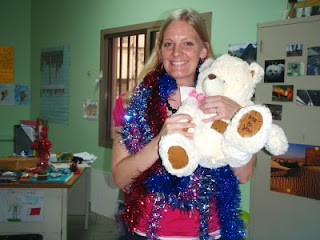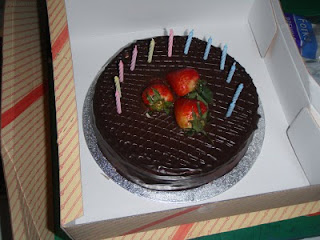Friday, March 18, 2011
The Pearl is gone!
Tuesday, March 15, 2011
the plot thickens...
Monday, March 14, 2011
videos
troops move in
(CNN) -- Foreign troops have begun to arrive in the strategically and financially important Persian Gulf kingdom of Bahrain, following a month of citizen protests, the Bahrain News Agency reported Monday.Saudi Arabia, Bahrain's giant neighbor, appears to have provided at least some of the troops, who come under the banner of the Gulf Cooperation Council. The Saudi state news agency said the government had responded to Bahrain's request for help in view of the importance of security there. According to the state news agency of the United Arab Emirates, it "decided to send a security force to keep the peace in the Kingdom of Bahrain," at that country's request. side Bahrain protests
Dr. Anwar Mohammed Qerqash, UAE minister for foreign affairs, said that this is a part of his country's responsibility within the Gulf Cooperation Council in order to bring "security and stability to the region." The mission is being called Operation Desert Shield -- the same name the United States used after Saddam Hussein's forces invaded Kuwait in 1990. The arrival of the troops follows a day of clashes between protesters and security forces that resulted in more than 1,000 people hospitalized, human rights activists said. Protests have swept the Arab world this year, toppling the leaders of Tunisia and Egypt, but it's not clear that any country had called in foreign troops for help before the GCC forces arrived in Bahrain on Monday. It is not clear exactly how many foreign security troops have entered Bahrain or where they are from. Various parts of the Bahraini government referred CNN questions to other government offices on Monday. An eyewitness told CNN that dozens of armored vehicles and buses full of soldiers crossed from Saudi Arabia into Bahrain on Monday afternoon via the causeway linking the two countries. The Gulf Cooperation Council is a group of six Gulf states -- Bahrain, Saudi Arabia, Kuwait, the United Arab Emirates, Oman, and Qatar -- that encourages cooperation among members in a number of areas, including the economy and security.
Also on Monday, a key part of the capital was taken over by protesters, a Human Rights Watch official told CNN. About 100 demonstrators blocked access to the Bahrain Financial Harbour with barricades such as trash cans and cinder blocks, in effect shutting down the commercial district, Faraz Sanei said. There was no police presence, he added. Bahrain's Foreign Minister Khalid al-Khalifa said the demonstrations are not peaceful. "What we are witnessing in Manama is no peaceful protest. ... It's (a) wanton, gangster style takeover of people's lives," he said on Twitter.
A pro-government group of lawmakers is urging the king of Bahrain to impose martial law for three months in the wake of the protests.
Protests on Sunday appeared to have been among the most violent since police tried to clear the capital's Pearl Roundabout in February, leaving seven people dead, according to demonstrators.
Most of Sunday's injured suffered gas-related injuries, including burns and breathing problems, according to Nabeel Rajab, president of the Bahrain Center for Human Rights. Doctors and nurses were among the injured. At least five people were in critical condition and at least two people lost their eyes because of bullet injuries, he said.
Manama, the capital, was in effect sealed off Monday, journalists there told CNN. The highway stretching from the Pearl Roundabout to the Bahrain Financial Harbour was blocked by trees and other debris. The government Sunday denied accusations that unjustified force was used against protesters at the harbor, along a key highway and at Bahrain University. Britain's Foreign Office warned against all travel to the Gulf kingdom Sunday until further notice, saying, "The risk of further outbreaks of violence has increased."
The nation's Independent Bloc of lawmakers called on Bahrain security forces to intervene to protect national security and stability, the Bahrain News Agency reported later Sunday. The bloc is made up of the 22 pro-government members of the lower house of the legislature. "Extremist movements are resorting to escalation and sectarian mobilization, which led to an unprecedented disruption of security and hostile sectarian polarization at health and educational institutions," the group said in a statement. The members of parliament asked King Hamad to enforce a curfew and deploy security forces across the country.
During protests in the tiny island nation, moderates have been demanding a constitutional monarchy and hardliners have called for the abolition of the royal family altogether.
The country has a Shiite Muslim majority population, but its rulers are Sunni Muslims.
CNN's Caroline Faraj and Jenifer Fenton contributed to this report.
Sunday, March 13, 2011
Birthday Bash













March 13
Protests have continued for the past few weeks, with the protesters moving to different locations around the island--the Pearl Roundabout, the Financial Harbor, the Royal Court, the US Embassy. So far things have remained peaceful. Until today. Below is an article taken from CNN.com which summarizes the days events...
How does this affect me personally? Well, students arrived nearly an hour late to school as many roads were closed resulting in traffic jams in an already heavily-trafficked area. Then by 10:00, parents started arriving in mass to pick up their children. By noon, we called the day, and everyone headed to the courtyard to wait for the parents as the influx was too much for the office to handle. Now we will just wait to see what happens tomorrow.
From CNN...
(CNN) -- Supporters of the rulers of Bahrain threatened about 5,000 university students protesting against the government at Bahrain University Sunday, eyewitnesses said.
Elsewhere in the strategically important kingdom, riot police fired tear gas at protesters to break up the blockade of a highway, the government said.
A video posted by an opposition party showed police appearing to fire two tear gas canisters at a man standing only a few feet from them. He doubles over after the first shot, and drops to the ground after the second, which appears to hit him in the face.
The man is not obviously threatening the police in the video, which was posted Sunday by Wefaq. The opposition party told CNN it was filmed Sunday near Pearl Roundabout, the center of month-old protests in the kingdom.
About 150 supporters of the royal family tried to get onto Bahrain University campus during the protest there, but only some managed to get in. An unknown number of people were injured, but it's not clear how many or how badly.
Security forces tried to prevent the regime supporters from entering the campus, and allowed people to leave the grounds but not to enter.
The tense standoff was one of at least three protests Sunday against the rulers of the small Gulf kingdom triggered by popular demonstrations that brought down the long-time presidents of Tunisia and Egypt earlier this year.
The latest protests came a day after America's defense secretary said he's "convinced" that Bahrain's royal leaders are "serious about real reform and moving forward," but emphasized that they must move quickly.
Defense Secretary Robert Gates was visiting the restive island kingdom, where he huddled with King Hamad and Crown Prince Salman and talked about the importance of engaging with opposition forces.
"I think that the concern now is that it's important that they have somebody to talk to and that the opposition be willing to sit down with the government and carry this process forward," he said.
On Sunday, some 250 young people organized a protest in front of Bahrain Financial Harbor in the capital Manama, witnesses said.
Text messages exchanged between them and others in the area warned of regime supporters approaching from Muharak, another island, but it's not clear the warnings are accurate.
Police and anti-riot squads stationed near the harbor fired tear gas and rubber bullets at protesters, leaving 20 injured, according to Salmanya Hospital. Al Wasat cameraman Mohammed Al-Mukharaq was among the seriously injured, his editor said.
The government says protest camp tents were "removed," but did not say how.
Many protesters mobilized to block off King Faisal highway to prevent the pro-regime groups from entering Bahrain's main island.
The government and eyewitnesses disagree about how the blockade ended.
Eyewitnesses and journalists say security officers asked them to disband and open the highway, and they complied.
The government said attempts by uniformed police officers to persuade the protesters to re-open the road reached an impasse and that a group of protesters attacked unarmed police officers, resulting in one police officer being stabbed and another sustaining a serious head injury.
Police then sought to disperse approximately 350 protesters by using tear gas in order to clear the road, the government statement said.
"The Ministry of Interior is currently undergoing operations to reopen the King Faisal Highway and advised all protesters to return to the Pearl Roundabout for their own safety," the government statement said.
The roundabout has been the center of protests in the kingdom for a month.
Bahrain, which sits in the Persian Gulf and is the base of the U.S. Fifth Fleet, has been wracked by anti-government protests since mid-February.
Sunni Muslims -- even though they are a minority in the kingdom -- dominate the government of Bahrain.
The Shiite Muslim majority has staged protests in recent years to complain about discrimination, unemployment and corruption, issues they say the country's Sunni rulers have done little to address.
Many of them are in the anti-government coalition that has been demanding reform as part of the eruption of discontent sweeping across the Arab world for the past several months. They have staged dramatic protests and camped out in the capital's Pearl Roundabout
Initially, protesters took to the streets of Manama to demand reform and the introduction of a constitutional monarchy. But some are now calling for the removal of the royal family that has led the Persian Gulf state since the 18th century.
Bahrain is in the shadow of Iran, a predominantly Shiite country and antagonist of Bahrain's close ally, the United States.
But Gates told reporters Saturday he "expressed the view that we had no evidence that suggested that Iran started any of these popular revolutions or demonstrations across the region."
However, he said, there's evidence that Iranians "are looking for ways to exploit" the protracted processes unfolding in the region, "particularly in Bahrain."
Three hard-line groups in the Gulf kingdom -- the Haq, Wafa and Bahrain Freedom Movement -- have united and called for the ruling family to step aside, they announced this week.
The new coalition is calling for a democratic republic with no ruling family -- a step further than other opposition groups, which are calling for a constitutional monarchy.
It appeared the hard-line groups represented a minority of the protesters at the roundabout.
In response to the protests, the government has promised to build 50,000 new housing units and hire an additional 20,000
police officers, roughly doubling the size of the force. Members of Bahrain's majority Shiite Muslim community are not allowed to join the force.
Bahrain's king reshuffled his Cabinet last month as protesters continued to call for reforms. He has also touted a "national dialogue" and urged Bahrainis "to engage in this new process" and "move away from polarization."
Journalist Mansoor Al-Jamri and CNN's Christine Theodorou, Dominique van Heerden, Mohammed Jamjoom and Jenifer Fenton contributed to this report.